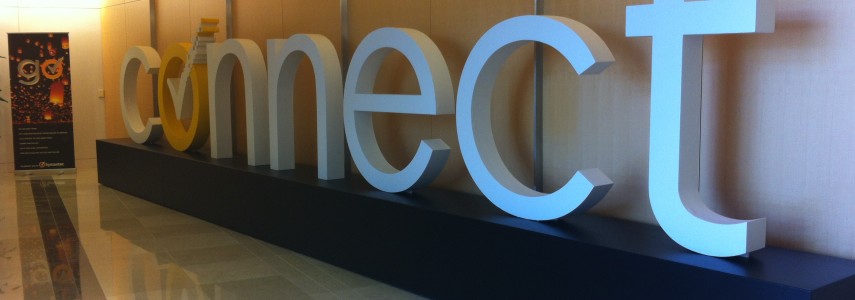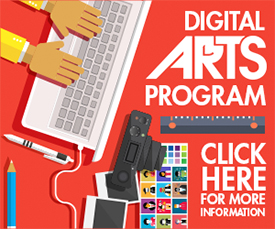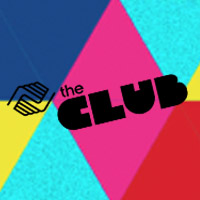
STEM Careers- Engineering
For engineers, the possibilities are endless. Depending on what they study, engineers may work on anything from agriculture and aerospace to energy and the environment. If you’re interesting in solving problems and/or designing and making things, this field could be for you.
In the video below, Symantec employee Nehal Mehta talks about how she discovered her passion for engineering during college, even though she started off majoring in another subject.
If you’d like to learn more about a career in engineering, you’ll find some helpful information below. But before you read any further, be sure to watch the video above to find out more about Mehta’s educational and work experience.
Need to Know Info:
Name: Nehal Mehta
Title: Director, Technology Alliances
Company: Symantec
College/Degree: University of Michigan-Dearborn, Bachelor of Science in Computer and Information Science
Graduate school attended/Degree and program emphasis: Wayne State University, Master of Science, Software Engineering; Engineering Leadership Program (“Mini-MBA” program), University of California, Berkeley
Current position: I drive partner and business development strategies for Symantec with other key technological companies. By building executive-level relationships, I foster such business partnerships in order to frame solution optimization and integration capabilities, along with the associated customer use cases. I develop the processes of the creation of new products and solutions between companies, addressing and implementing the Go-To-Market (GTM) initiatives. Furthermore, I am a key player in leading cross-functional teams for the executions of the strategic plans, to ensure Symantec’s leading position in the market.
Previous experience: I have had extensive technical, engineering and global management experience, along with technology alliances. Throughout the years, I have held varied positions in engineering, from software quality assurance to product delivery in cloud, storage and security markets. I was the Director of Quality Assurance for Engineering Management in NetApp as well as a Cloud Launcher at Live Office, where I played a key role in bringing customers into the cloud.
Outside of work, I am a mother of two children and a strong advocate for Women in Tech, in addition to being a speaker for numerous engagements. Furthermore, I am also a mentor and coach for kids in STEM.
Why did you decide to pursue an education in STEM? What inspired you?
During my junior and senior year of high school in India, mini computers/desktops were becoming more popular. I interned at Interface Electronics, where I automated account books, thus enabling management to obtain data within hours, which earlier took days or weeks.
I started my undergraduate studies as a Bachelor of Business Administration in Accounting, but I became very bored after two semesters and wanted to explore new areas. I enjoyed programming, robotics and statistics and as a result, I got into CIS and more broadly, STEM.
What were some of the core classes you took for your major?
During my undergraduate studies in University of Michigan-Dearborn, the campus was exposed to influence from auto companies. Seeing the robots in the industrial engineering labs that would later become part of the car-building assembly line was very inspiring. I would suggest taking artificial intelligence and robotics courses if you are interested in this field.
Did you have any relevant job shadow or internship experience in high school, college or graduate school? How did that prepare you for your career?
At UfM I worked in the deli, making sandwiches, and then as a tutor in the Math Lab. During my junior year, I got an internship as a systems analyst at Unisys. I learned different programing languages and a lot about how information and data is processed. I would make myself available to do work and projects that others did not want to do and I took initiative to document and streamline tasks, which increased productivity for my group. Truly, all these experiences helped me gain new technical, organizational, leadership and negotiation skills, which proved to be ultimately useful for my future roles.
Looking back, what classes did you take in high school that have helped prepare you for college, graduate school and/or your career?
I would suggest taking such courses including: Web Design, Intro to Programming and App Development.
What advice do you have for any teen who is considering a college and/or career path in STEM?
I would encourage each and every one of you to start or join clubs such as Mouse Squad, Techbridge and Lego Robotics. In addition, having a hands-on experience is crucial. The White House Maker Faire is a great event, providing a wonderful opportunity to build and present projects you created. By doing so, you will be immersed in the field of STEM and this can serve to ignite your passions, wherever that may be. Don’t be intimidated by the STEM field — keep an open mind and be willing to try new areas — you never know until you try!
A day at the office with Nehal Mehta
9 a.m.: Catch up on market intelligence and industry segment news
10-11:30 a.m.: Meeting at partner’s site to discuss joint product solution updates
Noon: Networking lunch with internal Social Media Marketing Manager
1 p.m.: Engineering discussion on solution use cases
3 p.m.: Lab equipment discussion for reference architecture validation
3:30-5 p.m.: Prepare briefing for CEO Meeting with partner CEO
6-7:30 p.m.: STEM event at Computer History Museum





Tirey
Trust me honey college is all about finnidg your path. Highschool just helps you get there. People change there majors time and time again. I’m in my 2nd year and just decided to change to OT (occupatuional therapy). You haven’t even got to that point. PT is a wonderful profession. Look into it. Many junior colleges offer AA training and so forth. See what course you would need to take and make sure that is a step in the right direction for you.FYI: PTs are going to be one of the most highly needed professions in the future as the baby boomers get older. So plenty of job security unlike engineering